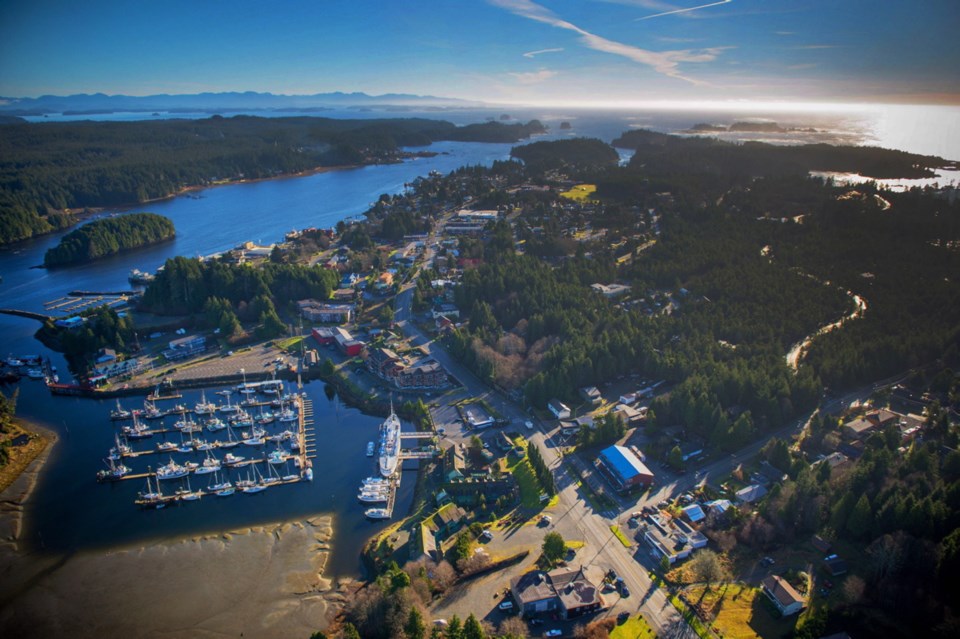Even though the B.C. government hasn’t give the green light to non-essential travel yet — it could happen this week — people are already visiting tourist hot spots on the Island’s west coast, creating tensions between communities that want to protect their COVID-19-free status and business owners trying to survive.
Port Renfrew’s Wild Renfrew, which operates oceanfront cottages, the West Coast Trail Lodge, the Renfrew Pub and the Coastal Kitchen, opened its doors on June 1 and has been welcoming weekend visitors from Vancouver, Victoria and the Cowichan Valley.
One of the property’s owners, Jack Julseth of Three Point Properties, said the reopening was done in close consultation with the Pacheedaht First Nation. The Pacheedaht-owned Soule Creek Lodge, which offers oceanfront yurts and cabins, opened to visitors on June 11.
Julseth said it’s difficult to balance economic recovery for businesses with travel restrictions to reduce the spread of COVID-19.
“There are some people who feel even people coming from Vancouver is increasing that risk and we shouldn’t have that,” he said, but: “Nobody can function by staying home forever.”
The West Coast Trail, which attracts about 9,000 hikers a year, remains closed with no reopening date. Julseth said he can’t imagine the 75-kilometre trail will open this summer, because it could raise concerns for the First Nation that does cleanup along the route.
The West Coast Trail Lodge has been hit hard by the closure, Julseth said, as it would typically accommodate about 4,000 of those hikers, most of whom are international or out-of-province visitors. “This is just one of those years. Like a farmer, sometimes the crop gets ripped out,” he said.
The province is expected to give an update this week on Phase 3 of the re-start plan, which would allow people to travel across the province. It’s unclear if Albertans will be able to travel to B.C.
Julseth said he’s heard Vancouver Islanders say that if there was a resurgence of cases here, “they’d want the province to turn off the tap in terms of the ferries.”
On Friday, B.C. Ferries reported a busy travel day at its terminals and asked people to consider travelling at off-peak times.
Nancy Owen, who owns A Snug Harbour Inn in Ucluelet, said she and husband Fabian Hogan opened up four of the six rooms as part of a “soft opening” in June.
The couple purchased the waterfront property a year ago after moving from Ontario and have put their mortgage payments on hold until they can start bringing in revenue again.
In February, the couple was looking at 80 to 90 per cent occupancy for June, July and August. Now bookings have dwindled to about 25 per cent occupancy.
So far, their guests have included one person from Vancouver and the rest from Vancouver Island.
“It’s very challenging. We want to keep ourselves safe, we want to keep our staff safe, but we also need some income — otherwise we’re going to lose this whole business,” Owen said.
The couple changed some of their procedures, such as bringing breakfast to the guests’ rooms instead of having guests come to the kitchen for a family-style meal. “Now it’s breakfast in bed instead of bed and breakfast,” she said.
Visitors from Alberta are booked to visit the inn later in the summer, but Owen said that all depends on when B.C. opens the door to out-of-province visitors.
Tofino Mayor Josie Osborne said she’s confident that the province will soon give the thumbs up for travel within B.C. Already there’s been a “strong trickle” of visitors to Tofino, which has given businesses the chance to practise their COVID-19 safety protocols.
“There’s no question there is a range of feelings on the pace at which we should reopen the tourism economy,” Osborne said. “I think that most people have a good understanding that we have to have a balance between reopening and protecting people from COVID-19. There’s also a good understanding that a prolonged economic closure also has a public-health impact.”
The Nuu-Chah-Nulth Tribal Council, which represents 14 First Nations communities along 300 kilometres of the west coast of Vancouver Island, has said its restrictions on visitors will remain until the province delivers on several conditions around COVID-19 testing and screening.
The council has voted to restrict non-essential entry to its territory, including provincial and federal parks near Tofino and Ucluelet and from Brooks Peninsula to north of Port Renfrew.
Pacheedaht First Nation is in Nuu-Chah-Nulth territory, but is not a member of the Nuu-Chah-Nulth Tribal Council.
Osborne said the municipality is working closely with local First Nations and meeting to discuss reopening plans.
She said the Nuu-Chah-Nulth Council is a unified voice, but each First Nation remains independent and autonomous.
The District of Tofino will allow businesses to expand onto public property, so restaurants and cafés can have more outdoor seating and retail stores can sell their goods from the sidewalk. The municipality is also planning an al fresco pop-up tent on a municipal parking lot across from the Village Green to give people space to eat takeout meals.
“And of course, the beaches are wide open beautiful spaces,” Osborne said.



